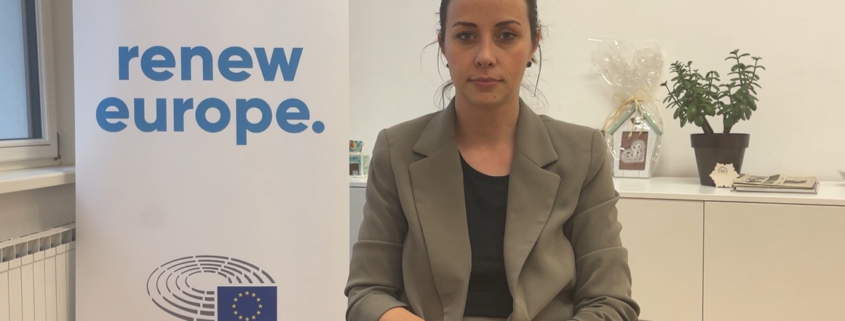“European history must be defended against all attempts at denial and revisionism, which run counter to fundamental European values. Monuments should reflect the values we strive for and on which a peaceful and prosperous Europe is based,” MEP Irena Joveva declared during the Between Memory and Oblivion debate on 24 May 2023. She warned that attempts to rewrite history are unacceptable and that political leaders have a responsibility to promote reconciliation and not to fuel nationalist narratives.
The event focused on the challenges facing the culture of remembrance of the Holocaust and other genocides, and on its close link with the promotion of European values.
The discussion revolved around how to provide better support for the protection of neglected World War II cultural heritage sites and ways to effectively address the distortion of historical facts about the Holocaust, other genocides and violations of humanitarian law during the Second World War.
In her video address, Joveva underscored that we must remember the key historical moments that shaped our communities in order to truly deliver on the promise of “never again”. According to her, the mass killings perpetrated during the Second World War attract more attention in the current public debate than in education and research, not least in the territory of the former Yugoslavia. She added that the most tragic event on European soil since the Second World War, the Srebrenica genocide, remains an open wound at the heart of Europe.
“It continues to haunt us and remind us of our shared responsibility to prevent genocide from ever happening again. This darkest moment in modern European history, along with other genocides, is often ignored or, worse still, associated with distortions of historical facts.“
Joveva is surprised by the fact that, despite all the documented evidence, people continue to dispute, deny and even distort the truth about the genocide.
“This may now be even more the case than before, as digital tools and social media make it easy for people to share disinformation while creating shocking and unfounded conspiracies, thus developing their own false reality. And it is surprising how many like-minded people they can find.”
She therefore went on to stress that European history must be defended against all attempts at denial and revisionism, which run counter to fundamental European values.
The MEP mentioned that civil society has a fundamental role to play in nurturing a democratic culture across Europe, so as to create an inclusive and tolerant environment for the younger generations by educating them about the atrocities that have taken place on European soil. She believes that this would make people less prone to discrimination and other harmful conduct in the future.
In conclusion, Joveva expressed her wish that future generations would focus on values that will create a better world, which is possible.
“Young people are the future. I am in constant contact with them and I see it every day in their enthusiasm and passion. Many of them just need opportunities and us to listen to them.”
The event was also attended by MEP Predrag Matić, Professor Amedeo Osti Guerrazzi from the University of Padua, Ivo Pejaković, Director of the Jasenovac Memorial Site, and Manuel Sarrazin, Special Representative of the German Federal Government for the Countries of the Western Balkans.





Leave a Reply
Want to join the discussion?Feel free to contribute!